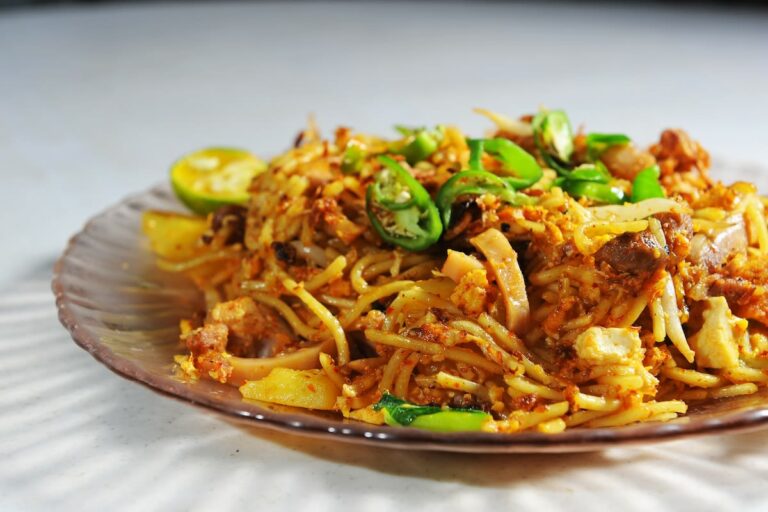Introduction: Fresh Ingredients and Sustainability in Malaysian Cooking
Malaysia is known for its diverse cuisine, which is heavily influenced by the country’s multiculturalism. With the focus on using fresh ingredients and promoting sustainable practices, Malaysian cooking has become an embodiment of healthy and eco-friendly food choices. The cuisine of Malaysia uses a wide range of herbs, spices, and fresh ingredients, which not only make the food taste good but also provide nutritional value.
Sustainability is at the forefront of the Malaysian government’s agenda, and as a result, many restaurants and food establishments have taken the initiative to promote sustainable practices in their cooking. Malaysia’s abundance of natural resources makes it an ideal location for promoting sustainable practices and supporting a healthy food culture.
Malaysian Cuisine: A Fusion of Flavors and Cultures
Malaysian cuisine is a reflection of its diverse cultural heritage, with influences from Chinese, Indian, and indigenous Malay cuisine. The food is characterized by its bold flavors and the use of fresh ingredients such as lemongrass, kaffir lime leaves, turmeric, and ginger. Malaysian cuisine is known for its extensive use of spices, which give the food its unique taste and aroma.
The fusion of flavors and cultures in Malaysian cuisine has made it a popular food choice globally. From street vendors to upscale restaurants, Malaysian food can be found in many countries worldwide. The use of fresh and sustainable ingredients in Malaysian cooking has made it a popular choice among those who seek healthy and eco-friendly food options.
The Use of Fresh Ingredients in Malaysian Cooking
Fresh ingredients are the backbone of Malaysian cooking. Herbs, roots, spices, and fresh produce are commonly incorporated into Malaysian dishes to provide a burst of flavor. The use of fresh ingredients not only enhances the taste of the food but also provides necessary nutrients for a healthy diet.
Malaysia’s tropical climate and extensive agricultural industry make it an ideal location for growing a variety of fruits and vegetables. Fresh and locally sourced ingredients are readily available, making it easy for restaurants and food establishments to incorporate them into their dishes. The use of fresh ingredients in Malaysian cooking highlights the importance of using locally sourced and seasonal produce.
Sustainable Practices in Malaysian Cooking
Sustainable practices have become a focal point in Malaysian cuisine. The government has implemented various initiatives to promote sustainable practices, such as reducing food waste and encouraging the use of renewable energy sources. Many restaurants have also taken the initiative to promote sustainable practices by sourcing ingredients locally, reducing plastic waste, and implementing energy-efficient practices.
Sustainable practices in Malaysian cooking have led to the creation of eco-friendly food establishments that prioritize the use of fresh and sustainable ingredients. These practices not only promote a healthier lifestyle but also contribute to the reduction of carbon emissions and waste.
Challenges in Promoting Sustainability in Malaysian Cuisine
While there is a growing emphasis on promoting sustainable practices in Malaysian cuisine, there are still challenges to overcome. One significant challenge is the lack of awareness and education about sustainable practices. Many consumers are unaware of the environmental impact of their food choices and the importance of supporting sustainable practices.
Another challenge is the cost of sustainable ingredients. While locally sourced and sustainable ingredients are preferred, they often come with a higher price tag, making it challenging for some restaurants to incorporate them into their dishes. Overcoming these challenges requires a collaborative effort between the government, food establishments, and consumers.
Conclusion: The Future of Malaysian Cooking and Sustainability
Malaysian cuisine has always been a reflection of the country’s diverse cultural heritage, and the use of fresh ingredients and sustainable practices has added a new dimension to it. With an emphasis on locally sourced and sustainable ingredients, Malaysian cooking has become an embodiment of healthy and eco-friendly food choices. The future of Malaysian cuisine is intertwined with sustainability, and it will take a collective effort to promote sustainable practices and create a healthier food culture.

